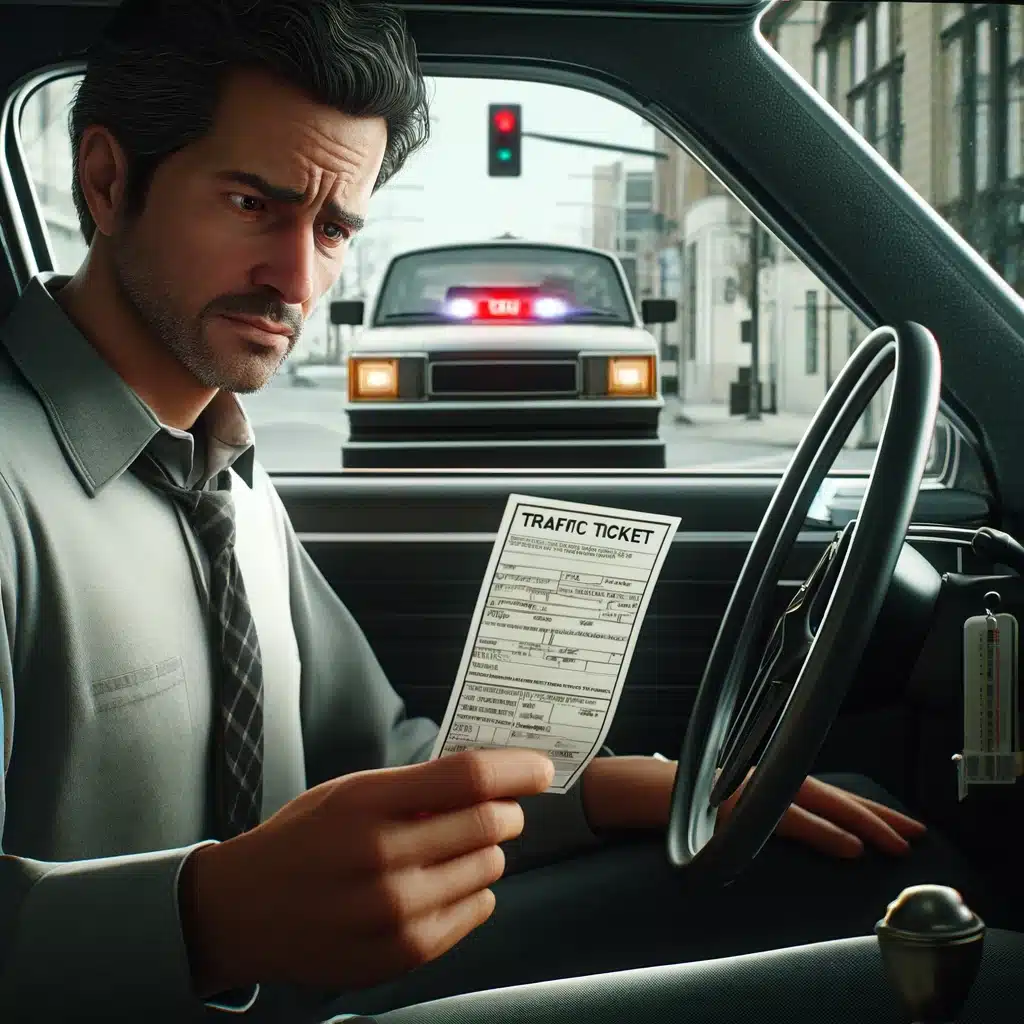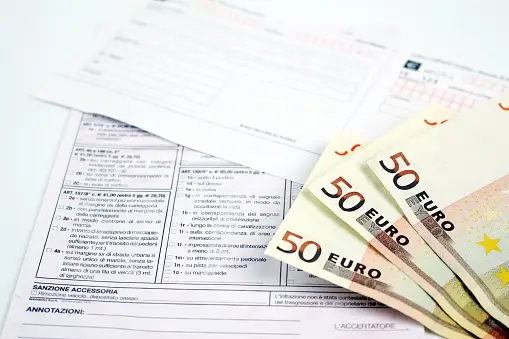Have you ever found yourself staring at a traffic ticket, wondering how it became an unexpected companion on your journey? Well, buckle up because we’re about to go through the twists and turns of ticket deferral – the ultimate guide to turning that traffic hiccup into a detour of possibilities. Whether you’re an experienced driver or a newcomer to the road, let’s explore the ins and outs of handling those elusive slips of paper that can make any commute a bit more eventful.

Why Tickets?
In our daily lives, encountering a ticket can disrupt our rhythm and prompt a cascade of questions. What led to this slip of paper appearing in our hands, demanding attention and perhaps a portion of our hard-earned funds? In this comprehensive exploration, we will unravel the multifaceted world of tickets, going beyond the surface to understand their types, the nuanced reasons prompting their issuance, and the broader implications they carry.

Understanding the Ticket Spectrum
Firstly, let’s navigate the spectrum of tickets. While traffic violations may be the most common culprits, the ticketing landscape extends far beyond speeding and stop sign mishaps. Parking infractions, noise complaints, and even littering can land you with a citation. Each type of ticket serves as a marker, a red flag indicating a deviation from societal norms or regulations.
The Reasons Behind the Paper Trail
Now, why do people find themselves holding a ticket? Consider the traffic stop scenario: perhaps you were momentarily distracted, misjudged a yellow light, or unknowingly exceeded the speed limit. Tickets, in essence, act as consequences for actions that breach the rules of the road or community guidelines.
However, it’s not merely about rule-breaking; tickets often serve as a means of maintaining order and safety. Whether it’s reducing reckless driving or deterring public disturbances, these slips of paper play a crucial role in upholding a structured and organized society.
Unpacking the Ticketing Process
To truly grasp the comprehensive nature of tickets, we must dive into the workings of the ticketing process. From the initial encounter with law enforcement to the subsequent legal procedures, understanding the journey of a ticket provides insights into the intricate workings of the justice system.
Additionally, exploring the variations in ticketing across jurisdictions sheds light on the diverse approaches to maintaining civic order. Different regions may emphasize certain types of violations or prioritize specific aspects of community safety, resulting in a nuanced tapestry of ticketing practices.
The Broader Implications
Beyond the immediate problems and financial considerations, tickets carry broader implications for individuals and communities. They contribute to statistical data used for policy-making, shape public perceptions of law enforcement, and play a role in shaping societal norms. Furthermore, how jurisdictions handle ticketing can influence public trust in the legal system and impact social dynamics.
What Is Ticket Deferral?
Ticket deferral, a legal avenue available to those facing citations, provides an alternative path for individuals seeking to navigate the complexities of traffic violations and other infractions. This nuanced process allows individuals to temporarily delay the resolution of a ticket by complying with specific conditions outlined by authorities. In this comprehensive guide, we’ll delve deeper into the intricacies of ticket deferral, exploring its purposes, common requirements, and the potential benefits it offers.
Understanding Ticket Deferral
Ticket deferral serves as a legal mechanism designed to give individuals a chance to rectify their situation without immediately contesting or paying the fines associated with a citation. It’s essentially a grace period during which the recipient can take proactive steps to address the issues that led to the ticket.
While the specific conditions for deferral can vary significantly based on jurisdiction and the nature of the citation, certain common requirements often emerge. Completing a defensive driving course, participating in community service, or sticking to a probationary period without additional infractions are typical components of deferral programs. These conditions aim to promote responsible behavior and enhance the individual’s understanding of the rules they may have violated.
Eligibility Considerations
Not all tickets are eligible for deferral, and eligibility criteria can vary widely. Some jurisdictions may limit deferral to certain types of infractions or consider factors such as the person’s driving record. It’s crucial for those considering deferral to check with local authorities or seek legal advice to understand the specific eligibility criteria applicable to their situation.

Benefits of Ticket Deferral
Opting for ticket deferral can offer several potential benefits. Successfully completing the deferral requirements often results in the dismissal of the ticket or a reduction in fines. This can not only alleviate immediate financial burdens but may also prevent the accumulation of points on the individual’s driving record, which could impact insurance rates.
Navigating the Deferral Process
To effectively navigate the deferral process, individuals should familiarize themselves with the steps involved. From submitting the necessary documentation to meeting deadlines for completing deferral conditions, a proactive approach is key. Understanding the local legal landscape and seeking guidance from legal professionals can contribute to a smoother deferral process.
By comprehensively understanding the purposes, conditions, and potential benefits of deferral, individuals can make informed decisions to address their citations responsibly. Always remember to consult local authorities or legal professionals for jurisdiction-specific information to ensure a seamless deferral process tailored to individual circumstances.

Community Service or Education Courses: Options for Deferring Traffic Tickets
When the unwelcome presence of a traffic ticket disrupts the flow of daily life, individuals are often presented with the option of deferral. This alternative approach allows for the postponement of the ticket’s resolution by fulfilling specific requirements. Among the choices available, such as hiring a driving ticket lawyer, community service and educational courses stand out as popular avenues for deferring traffic tickets. In this extensive exploration, we will delve deeper into the mechanics of both options, understanding their intricacies, benefits, and considerations.
Community Service Deferral:
Choosing community service as a deferral option entails individuals contributing a designated amount of time to volunteer work within their local community. The nature of these service activities can vary widely, from participating in neighborhood clean-ups to assisting at community events or supporting charitable initiatives. The underlying principle is to not only fulfill the deferral requirement but also to instill a sense of civic responsibility.
Benefits of Community Service Deferral:
– Positive Impact: Beyond addressing the consequences of a traffic violation, individuals can make a tangible positive impact on their community.
– Community Connection: Engaging in community service fosters a sense of connection with local issues and reinforces the importance of responsible citizenship.
Educational Courses Deferral:
On the other hand, educational courses, particularly defensive driving courses, offer an alternative path for deferring traffic tickets. These courses typically cover a range of topics, including traffic laws, safe driving practices, and defensive driving techniques. Completing such a course fulfills the deferral requirement. It also demonstrates a commitment to enhancing one’s understanding of safe driving behaviors.

Benefits of Educational Courses Deferral:
– Knowledge Enhancement: Participants gain valuable insights into traffic regulations and safety, potentially reducing the likelihood of future violations.
– Insurance Benefits: In some jurisdictions, individuals who complete defensive driving courses may be eligible for insurance discounts as a bonus.
Choosing the Right Option:
The decision between community service and educational courses hinges on individual preferences, schedules, and the nature of the violation. Community service appeals to those who wish to contribute directly to their community. On the other hand, educational courses offer a structured means of improving driving knowledge.
Important Considerations:
– Jurisdictional Variances: The acceptance and availability of community service or educational courses for deferral can vary significantly based on jurisdiction.
– Timely Completion: Meeting deadlines for completing either community service or educational courses is paramount.
Conclusion
In conclusion, choosing deferral options involves a nuanced evaluation of personal values, community engagement, and a commitment to responsible driving. Both paths offer unique opportunities for personal growth and a proactive approach to addressing the consequences of a traffic violation. By understanding the specific requirements and benefits associated with each option for deferring traffic tickets, individuals can make informed decisions. They can also ultimately turn a traffic hiccup into an opportunity for positive change.
Other Related Articles
- Understanding the Consequences of Receiving a Traffic Ticket
- Community Service or Education Courses: Options for Deferring Traffic Tickets
- Consequences of Ignoring a Speed Ticket Court Date
Oluwatukesi Joseph is a Content Writer at LOBF. He holds a Master’s Degree from Obafemi Awolowo University in Architecture, However, his love for writing and content creation has transitioned him into the writing and content marketing field. He has gained relevant certification from other notable Universities where he developed a strong foundation in content marketing and writing.
Outside of work, Joseph enjoys spending quality time with friends and family and playing chess, which he finds often complements his professional pursuits. Joseph is excited to be part of the dynamic team at The Law Office of Bryan Fagan, contributing his expertise to spreading the good news of LOBF to Families across Texas.




